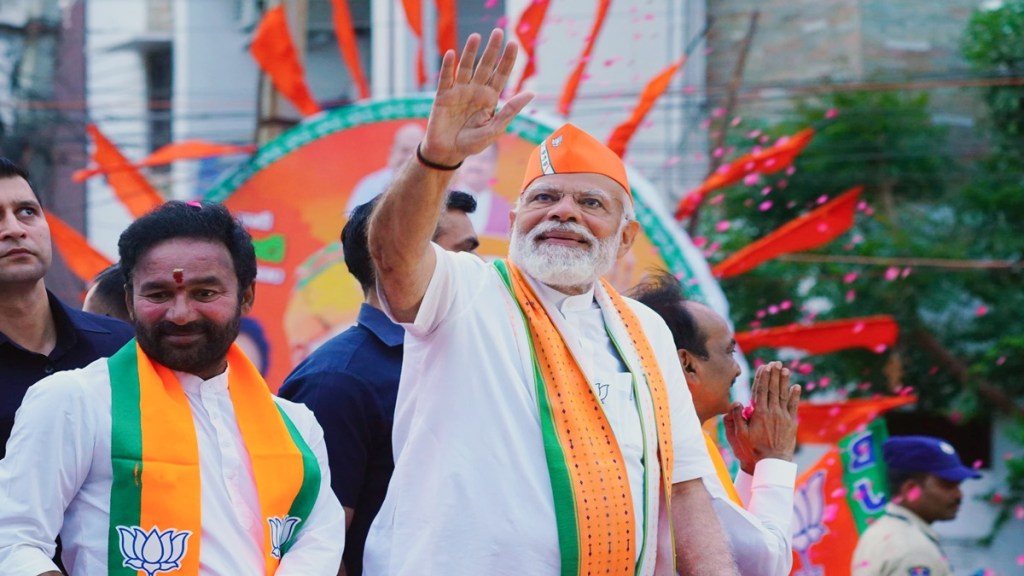Prime Minister Narendra Modi will pay homage to the victims of the 1998 blast while concluding his Coimbatore roadshow in RS Puram, the site of the blast, on Monday.
On Friday, the Madras High Court greenlighted Modi’s roadshow, directing the police to grant permission to conduct a 4-km roadshow in the city. However, the court imposed certain restrictions on its conduct, despite earlier denial of permission by police authorities.
Also Read:‘Shakti will emerge victorious on June 4’: PM Modi hits back at Rahul Gandhi
The roadshow will traverse Mettupalayam Road and is expected to culminate at RS Puram later in the day. This marks Modi’s first political engagement in the state following the announcement of the seven-phase Lok Sabha polls schedule.
Earlier in the day, he carried out a rally in Telangana’s Jagtial city, where he took a direct swipe at the opposition over corruption and dynastic politics, accusing them of being involved in the country’s “biggest scams.”
What happened in Coimbatore in 1998?
The 1998 bombings were a series of coordinated attacks that shook the city of Coimbatore, Tamil Nadu on February 14, 1998. It was a horrific event that left a deep scar on the city.
A total of 12 bombs detonated across 11 different locations within a 12-kilometer radius. which resulted in the deaths of 58 people and injuries to over 200. The bombs were planted in various places, including the Coimbatore Junction railway station, a market area near a BJP leader’s election meeting venue, and commercial buildings.
Also Read:Lok Sabha Elections: Madras HC allows PM Modi’s Coimbatore roadshow with riders
There were speculations that some of the blasts were aimed at Lal Krishna Advani, a prominent leader of the BJP, who was present in the city for a rally.
The bombs, primarily composed of gelatin sticks with timer devices, were cleverly concealed within ordinary objects like bicycles, bags, and fruit carts. Fortunately, bomb disposal squads managed to defuse some of the devices, preventing further devastation.
Al-Umma, a radical Islamic organisation based in Tamil Nadu, was believed to be behind the attacks. The motive appeared to be retaliation against the Hindu nationalist movement in India and the policies of the BJP-led government, particularly related to the Babri Masjid demolition in 1992.
The Coimbatore bombings sparked widespread condemnation and heightened tensions in the region. Multiple suspects were apprehended and faced legal proceedings in connection to the attacks, leading to a prolonged and challenging legal process.

